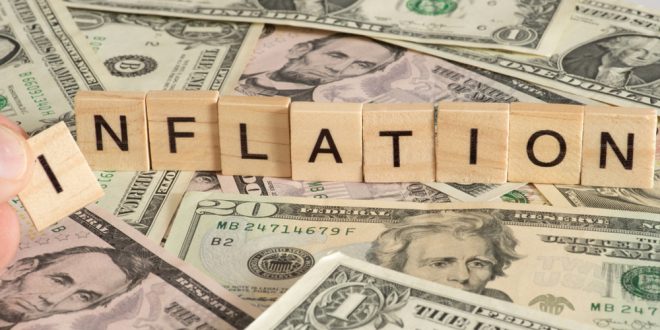As the US inflation data is expected to show that prices rose by 0.4% in January, for a 7.2% gain from one year ago, major currency pairs continue lacking certain direction and struggle to maintain their strength.
Major currencies have also held within limited intraday ranges on Tuesday. The US dollar found some strength in soaring government bond yields, as that on the US 10-year Treasury note reached 1.97%. However, yields’ strength was barely enough to prevent the dollar from plummeting.
The EUR/USD pair briefly pierced the 1.1400 level but ended the day in the 1.1410 price zone. Comments from the European Central Bank member Francois Villeroy put some pressure on the shared currency by the end of the day, as he noted that the market may have overreacted to President Christine Lagarde’s words last week.
UK Prime Minister Boris Johnson reshuffled its cabinet. Jacob Rees-Mogg has become the new Brexit Minister, while Mark Spencer replaced him as leader of the Commons. Chris Heaton-Harris becomes the new chief whip, while Paymaster General Michael Ellis would take on the additional role of minister for the Cabinet Office. The decision comes in the middle of the lockdown parties’ scandal, which menaces Johnson’s leadership. GBP/USD trades around 1.3550.
The AUD/USD pair is up for a second consecutive day trading in the 0.7140 region. The USD/CAD pair edged higher and currently hovers around 1.2700, as lower oil prices undermined demand for the Canadian dollar. The US dollar posted modest gains against safe-haven CHF and JPY.
Gold surged to a fresh two-week high of $1,828.36 a troy ounce, holding nearby at the end of the day. Meanwhile, WTI trades at $89.80 a barrel.
Market players keep waiting for January US inflation figures to be out on Thursday. Global investors are awaiting key data on Thursday, with the US Labour Department set to release January’s consumer price index figures. The currency market has broadly traded little changed as traders and investors wait for US consumer price data on Thursday.
Inflationary pressures in the US continued to heat up at the start of the year, data are expected to show, likely putting a Federal Reserve interest-rate increase next month on autopilot.
The US trade deficit has already hit a record reading in December, a sign of strong consumer demand and small improvements in supply-chain bottlenecks that have hindered economic growth and fueled inflation.
The deficit was close to a record in November and preliminary data for December showed a new high for goods imports and a pickup in goods exports, both led by autos and consumer products. Tuesday’s Commerce Department report could round out the preliminary figures with more details and new data on trade in services.
The December deficit in trade of goods and services grew by 1.8% to a seasonally adjusted $80.7 billion, the Commerce Department said Tuesday, just less than the record deficit of $80.8 billion in September.
The full-year trade deficit for 2021 increased 27% to $859.1 billion, larger than the previous record of $763.53 billion in 2006. Annual trade balance records date to 1960.
U.S. equity benchmarks finished decisively higher Tuesday, following choppy morning trading, as investors took comfort in corporate quarterly reports and awaited data later this week on inflation. Market participants also kept a close eye on interest rates, with the yield on the 10-year Treasury note rising toward 2%.
Yields have jumped as investors price for the likelihood that the Federal Reserve will hike rates faster than previously expected to tackle persistent inflation.
Several catalysts this week could push 10-year note yields through the 2% support level this week, with banks and investors setting up for a $37 billion auction of the notes on Wednesday, and highly anticipated U.S. inflation data for January due on Thursday.
Small business sentiment dimmed in January as inflation prompted the percentage of owners that intend to pass the pain along to their customers by hiking selling prices reached the highest level since 1974.
More small business owners started the New Year raising prices in an attempt to pass on higher inventory, supplies, and labor costs. In addition to inflation issues, owners are also raising compensation at record high rates to attract qualified employees to their open positions.

 Noor Trends News, Technical Analysis, Educational Tools and Recommendations
Noor Trends News, Technical Analysis, Educational Tools and Recommendations




